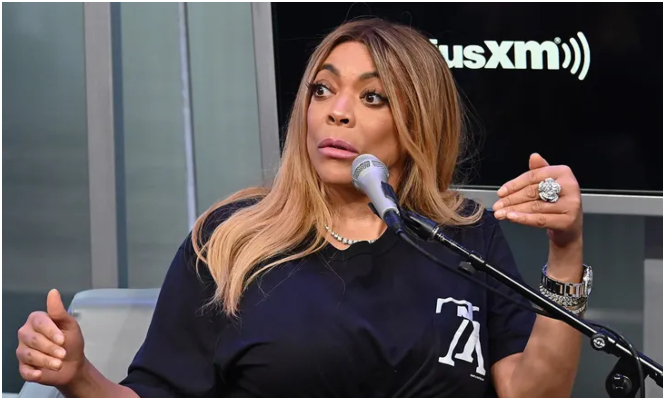Introduction: The Fight for Personal Autonomy
Wendy Williams’ ongoing legal battle to end her guardianship has reignited discussions about the rights of individuals under court-ordered financial and personal oversight.
The former talk show host, who once commanded millions of viewers with her unfiltered takes on pop culture, now faces an uphill legal fight to prove she can manage her own affairs.
At the heart of her case is a fundamental legal question: When does the state have the right to take control over a person’s life, and how can they get it back? Williams’ affidavit asserting she has “regained capacity” and her denial of a Frontotemporal Dementia (FTD) diagnosis place her at the center of a guardianship dispute that touches on mental health law, due process, and individual rights.
What Is Guardianship? Understanding the Legal Concept
Legal guardianship (sometimes referred to as a conservatorship, depending on the jurisdiction) is a court-imposed arrangement where a designated person or entity assumes control over an individual’s personal and/or financial affairs. This typically happens when the individual is deemed legally incapable of managing their own affairs due to:
- Mental illness
- Cognitive decline (e.g., dementia)
- Intellectual or developmental disabilities
- Physical incapacity
- Undue influence or financial exploitation
Guardianships are meant to protect vulnerable individuals, ensuring their safety and financial stability. However, they are also highly restrictive, often stripping the individual of the right to make financial transactions, sign legal documents, or even make medical decisions.
How Wendy Williams Entered Guardianship

Williams’ financial guardianship was established in 2022 after Wells Fargo flagged concerns about her ability to manage her finances, citing suspected “undue influence” by individuals around her. The bank’s concerns led to a court-ordered freeze on her accounts, followed by the appointment of a guardian.
At the time, Williams’ erratic behavior, health struggles, and abrupt departure from The Wendy Williams Show fueled speculation about her well-being. However, the specific details of the legal proceedings were sealed, leaving the public with little insight into how the court determined she lacked capacity.
How Courts Determine Capacity in Guardianship Cases
A key issue in Wendy Williams’ legal battle is capacity—the ability to make informed decisions. Courts generally assess capacity based on medical evaluations, witness testimony, and the individual’s ability to:
- Understand the nature and consequences of their decisions
- Communicate a clear and rational choice
- Manage their personal and financial affairs responsibly
If a person lacks capacity, the court may appoint a guardian to act in their best interest. However, if capacity is regained or misjudged, the individual has the right to petition for their guardianship to be terminated—a process Williams is now pursuing.
Williams’ Legal Strategy: Fighting to Regain Control
Williams’ affidavit asserts she has “regained capacity”, a critical legal declaration that challenges the basis of her guardianship. Her legal team has taken a multi-step approach:
- Medical Evaluation: She is set to undergo a formal medical evaluation by a doctor of her choosing, rather than one appointed by the court or her guardian. A favorable report could provide key evidence to support her claim.
- Emergency Order to Show Cause: Her attorney plans to file an Emergency Order to Show Cause, requesting an immediate hearing before the judge overseeing her case. This procedural move forces the court to justify why her guardianship should remain in place.
- Potential Jury Trial: If the emergency request is denied, Williams may seek a jury trial to decide whether she is legally competent. While rare, jury trials in guardianship cases allow peers—not just a judge—to determine an individual’s rights.
Legal Precedents: Guardianships in High-Profile Cases
Williams’ case draws parallels to other high-profile guardianship battles, including:
- Britney Spears: Spears’ 13-year conservatorship ended in 2021 after she successfully argued that she was being unfairly controlled, despite having the ability to work and manage her career. Her case highlighted issues of undue control and lack of due process in conservatorship laws.
- Casey Kasem: The legendary radio host was placed under a contested conservatorship during his final years, with family members accusing his guardian of mismanaging his care and finances.
- Nichelle Nichols: The Star Trek actress was placed under guardianship amid concerns of financial exploitation, despite her ability to express her wishes to regain control.
These cases highlight the tension between protection and personal autonomy—a central issue in Williams’ fight.
Challenges in Ending a Guardianship
Even if Williams presents strong evidence, ending a guardianship is not easy. Courts tend to err on the side of caution, prioritizing protection over autonomy. Some common legal hurdles include:
- Judicial Reluctance: Judges may be hesitant to remove a guardianship unless there is overwhelming evidence that the individual is fully capable.
- Medical Disagreements: If court-appointed medical experts disagree with Williams’ chosen doctor, the process could be prolonged.
- Proving Financial Competency: Even if Williams proves she can make personal decisions, the court may still require evidence that she can responsibly handle her finances.
The Bigger Picture: What This Means for Guardianship Reform
Williams’ case is not just about one woman’s fight for freedom—it highlights broader systemic issues in the guardianship system:
- Lack of Transparency: Many guardianship cases are sealed, limiting public scrutiny and accountability.
- Potential for Abuse: Some guardianships remain in place even when individuals regain capacity, raising concerns about undue control.
- Barriers to Termination: The legal process to end a guardianship is often complex and expensive, making it difficult for individuals to regain their rights.
Conclusion: A Legal Battle with Wide Implications
As Wendy Williams prepares to challenge her guardianship in court, her case underscores the delicate balance between protecting individuals and preserving their fundamental rights. Whether she successfully regains control will depend on legal arguments, medical evaluations, and the court’s willingness to reconsider its initial decision.
Regardless of the outcome, Williams’ legal fight shines a light on the need for greater oversight, due process, and reforms in guardianship law. For now, all eyes remain on the courtroom, where Williams hopes to reclaim her independence.
Click here for DOJ’s detailed presentation of key concepts and resources on Guardianship

